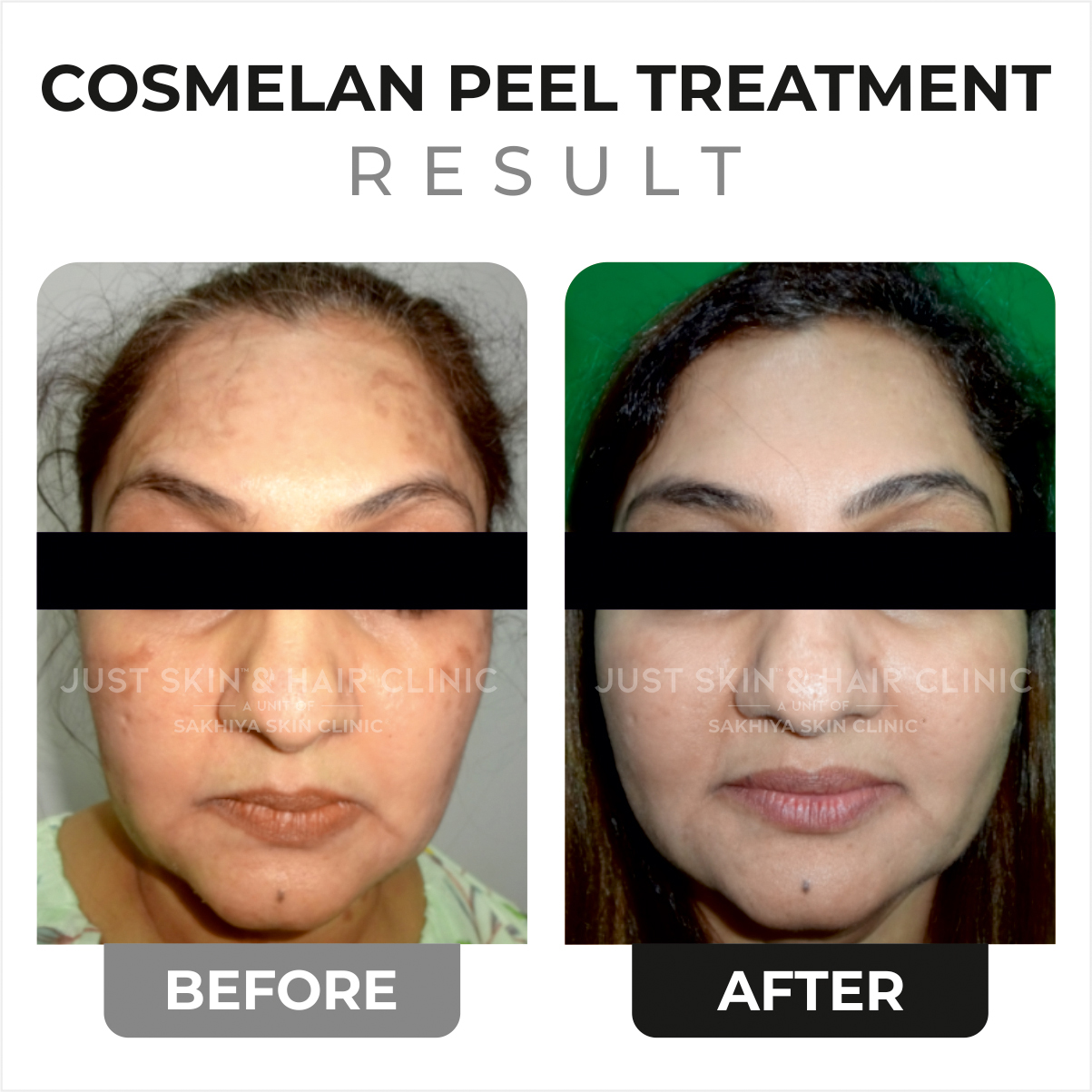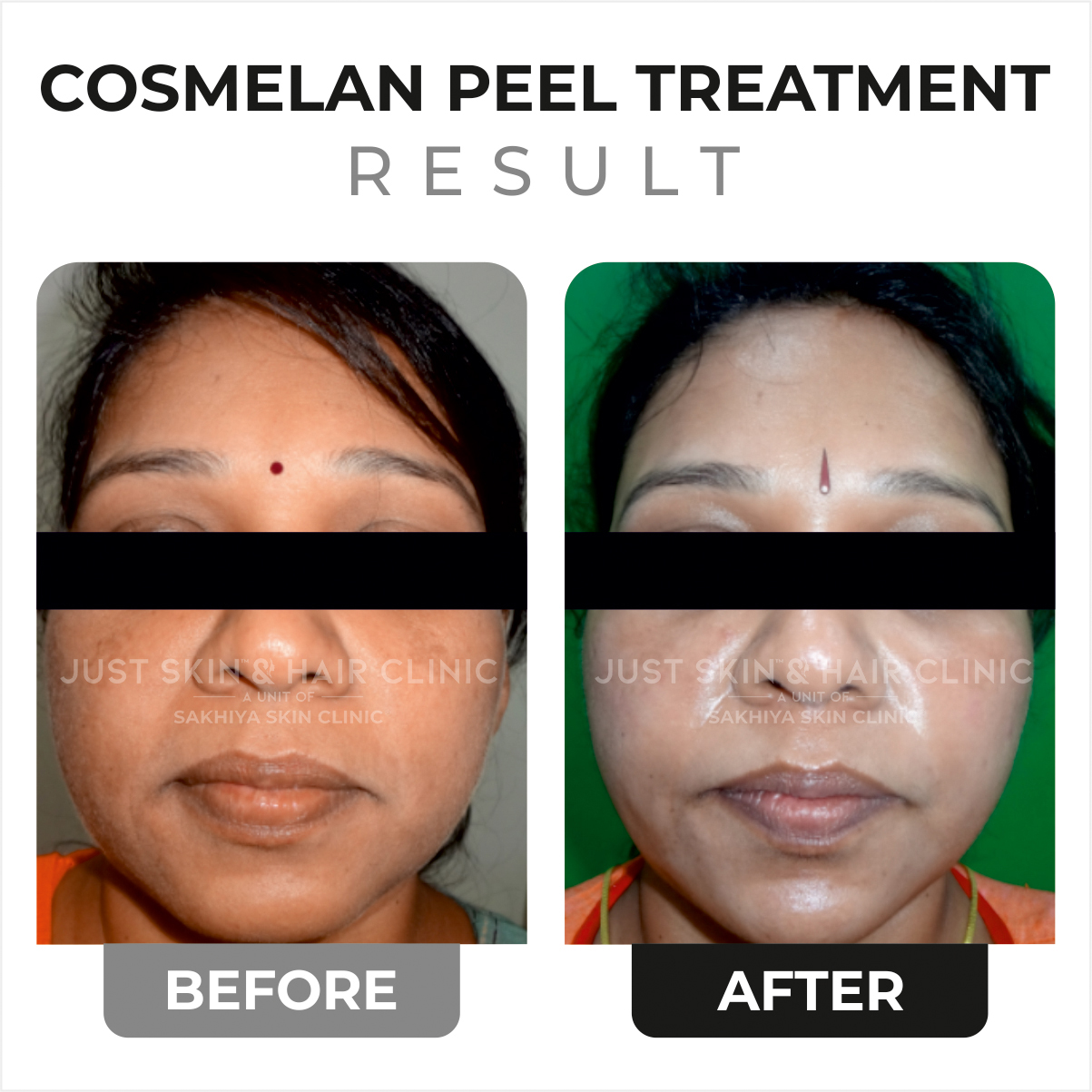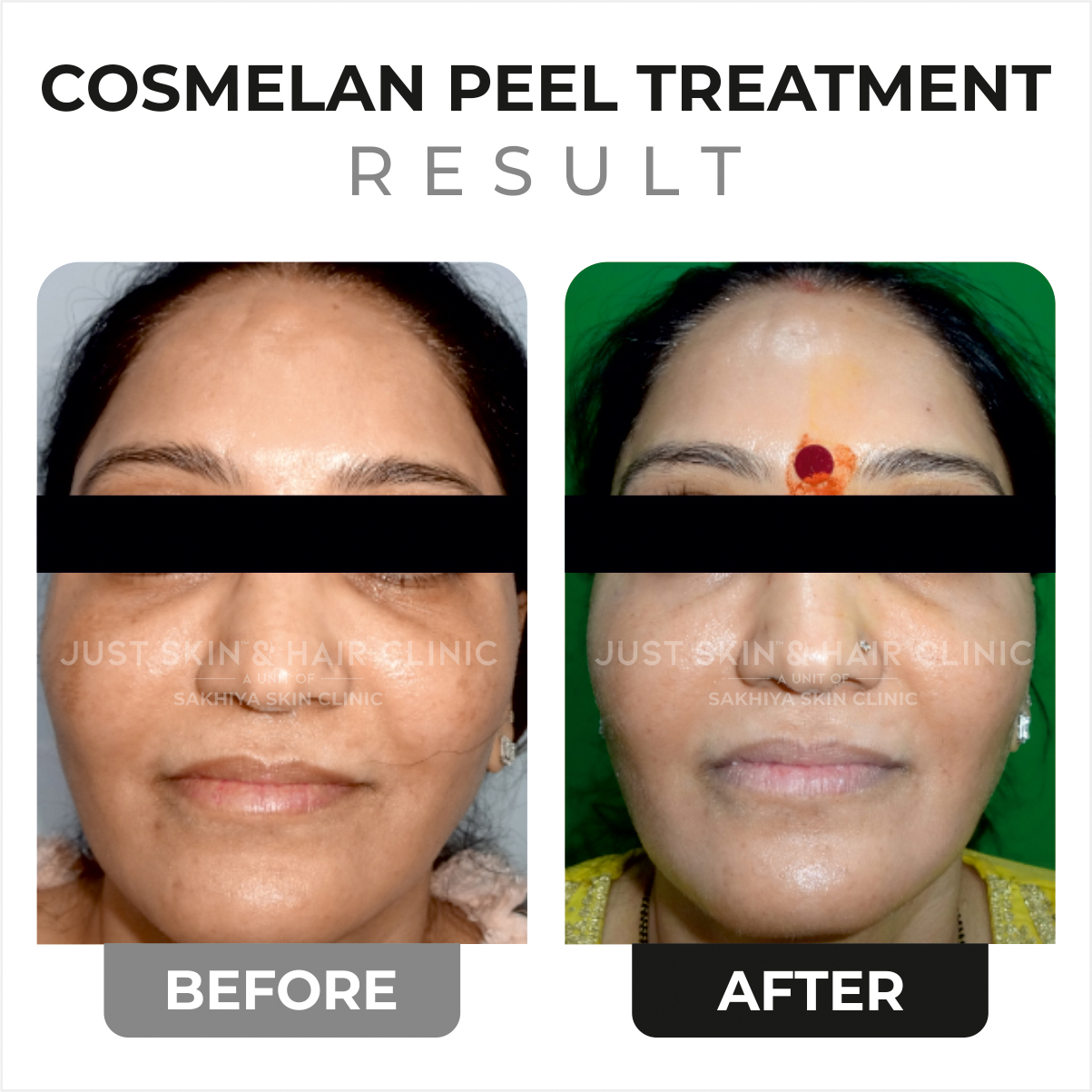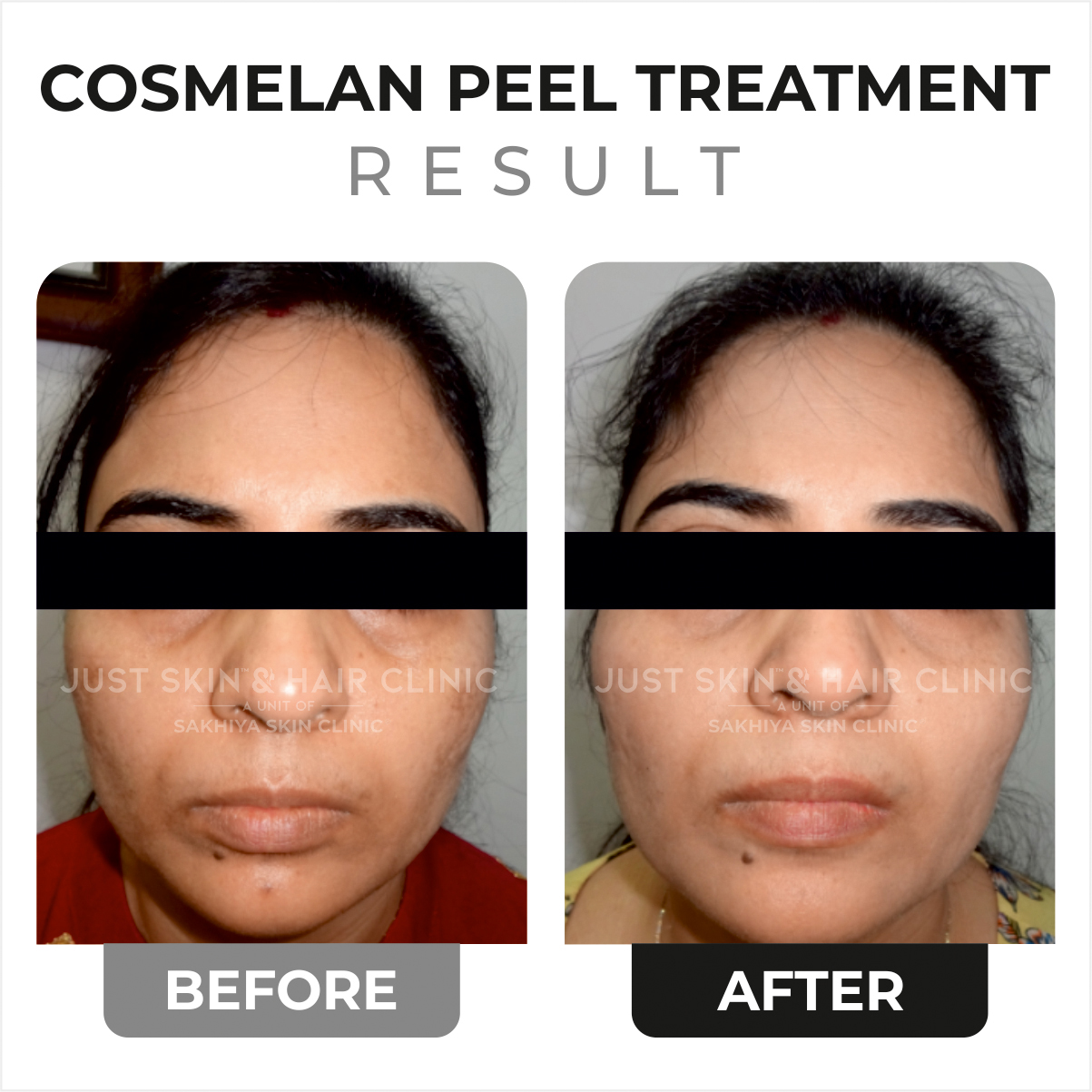Cosmelan Peel
various forms of hyperpigmentation, this treatment offers a comprehensive
approach to achieving a balanced, rejuvenated complexion.
What Is Cosmelan PEEL?
Cosmelan peel is an immensely powerful depigmentation treatment that reduces hyperpigmentation, brown spots, melasma, photodamage and early signs of ageing. It’s a professionally upgraded technique followed by qualified healthcare providers and which works by exfoliating the top layers of skin. This is an advanced version of existing peels and skin-lightening treatments.
Methods/Solutions
Cosmelan Peel is a boon for those who are not satisfied with any other skin-lightening treatment and want an even brighter complexion.
Benefits of Cosmelan Peel
- Evens the skin tone
Cosmelan peel reduces all the dark spots, brown spots, photodamage, melasma and hyperpigmentation. This eventually removes the unevenness in skin tone.
- Smoothens the skin
This depigmentation treatment not only removes the dead skin cells and shrinks the open pores but also prevents the reoccurrence of pigmented lesions.
- Improves the complexion
This depigmentation treatment helps in achieving a brighter and more vibrant complexion. It doesn’t fail to give u a natural facial glow that everyone seeks.
- Stimulates collagen
It boosts collagen production that helps in removing early signs of ageing like fine lines and wrinkles and giving you a younger-looking skin.
- Entirely safe
This treatment is safe for all skin types. It doesn’t cause any discomfort or adverse effects if performed by an expert and certified professional.
- Improves the overall wellbeing
This highly effective depigmentation treatment improves the overall personality and well-being of the person. It ultimately boosts their confidence and self-esteem.
Effects/ Causes
Effects of Hollywood Facial
- Reduction of Melasma
- Clears Hyperpigmentation
- Improves Skin Radiance
- Evens Skin Tone And Texture
- Reduction in Visible Skin Imperfection
- Rejuvenation of Dull Skin
Causes Targeted by Hollywood Facial
- Hyperpigmentation
- Sun Damage
- Melasma
- Uneven Skin Tone and Texture
- Age Spots
- Dull and Tired Skin
frequently asked questions
Allergy is a condition wherein a person's immune system reacts abnormally to a harmless foreign agent/substance.
Majorly, there are three types of skin allergies commonly faced by people-
A. Eczema
In this type, people face redness, itchiness, and dryness on their skin. It also has various types.
B. Contact dermatitis
Whenever any allergen comes in contact with the skin, it breaks out and leads to blistering, redness, or itchiness.
C. Hives (urticaria)
These are tiny itchy bumps that appear on the skin when it comes in contact with an allergen. At times, these vanish on their own, and sometimes, these last as long as six to eight weeks.
The symptoms depend on the type and severity of the allergy and hence, vary from person to person. The most common symptoms are as follows-
- Dry, rough, and scaly patches
- Itchy skin or bumps
- Redness and irritation
- Dark patches
- Swelling
- Cracked skin
- Skin becoming highly sensitive
A skin allergy happens when the skin becomes irritated. For some reason, one's immune system reacts to some agent which is generally harmless. This allergic reaction may cause rashes, itching, bumps, redness, burning sensation, swelling, hives, etc.
Exposure to the Sun and harmful UV rays adds up to the irritation and sensitivity your skin already has. It is recommended not to go out during peak hours of sunlight. Shield your skin with cloth and apply sunscreen if it's necessary to go out.
Honestly, there is no cure for allergies right now. There are certain medications that can soothe the skin. Avoiding contact with allergens would help in preventing the occurrence and spread of allergy. Immunotherapy is also considered effective in reducing the gravity of allergic reactions.
An allergy is caused when our immune system mistakenly reacts to a harmless agent. The immune system keeps producing antibodies that remain alert for that allergen. So, whenever the skin is exposed to that allergen, these antibodies release immune system chemicals that eventually cause allergy. Generally, these allergens are airborne, any food products, insect bites, medications, etc.
One can't necessarily pass on the allergy genetically but if any parent has numerous environmental allergies, there is a high chance of the child developing some kind of allergic disease.
The allergic reaction may occur within minutes to hours of being exposed and may last for two to four weeks. It all depends on what type of allergy the person has.
The most common type of allergy test is skin prick testing. In this method, a drop of liquid containing the prospective allergen is put onto your forearm. The skin under this drop is carefully pricked using a needle. A red and itchy bump appears on the skin within 15 minutes if the skin is allergic to it, claiming positive results.




